Foreign Fighters Vow to Support Ukraine Against Russian Invasion
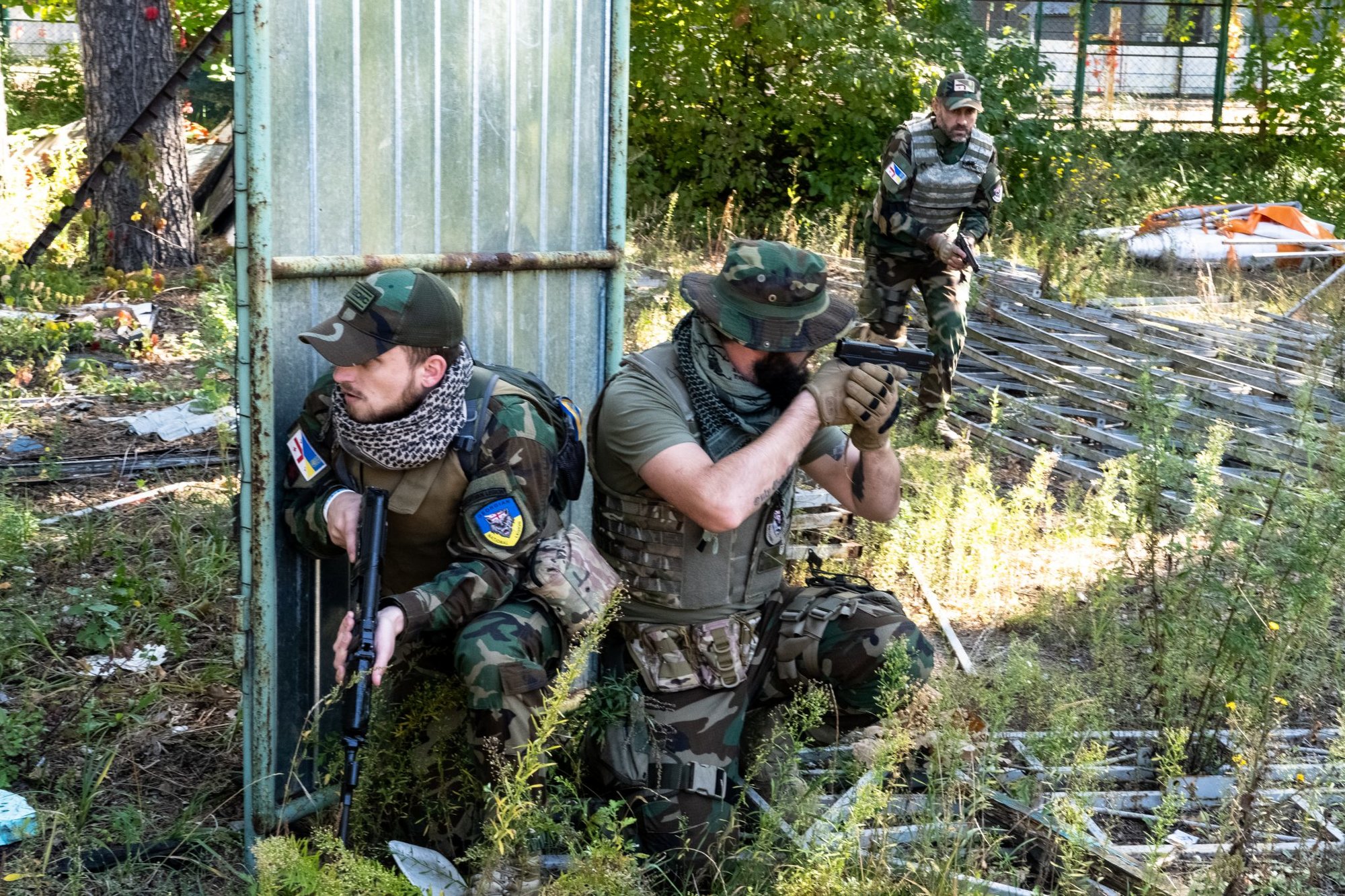
The Georgia National Legion trains at their base on the outskirts of Kyiv in 2021. Photo by Nolan Peterson/Coffee or Die.
KYIV, Ukraine — At a base on the outskirts of Ukraine’s capital city, members of the Georgia National Legion gathered for an afternoon of combat training. The soldiers — five Georgians and one Albanian — snaked through an overgrown, abandoned industrial area. They advanced purposefully, covering each other’s movements. At the appointed moment, they stormed inside the target building while firing a barrage of blanks from their assault rifles and pistols.
It was an impressive display. Especially considering the fact that these soldiers were all volunteers training to defend a country that isn’t their own.
“We are united by our desire to stop Russian aggression,” said Vano Kakviashvili, a 38-year-old Georgian army veteran who currently serves in the Georgia National Legion. “This is our generation’s struggle. We have to fight for Ukraine’s freedom.”
On this day’s drills, the five Georgians are all combat veterans of Russia’s 2008 invasion of their homeland. The lone Albanian, a 24-year-old named Emanuel Bazanji, is a former Albanian army soldier who volunteered to fight for Ukraine because “this is the last frontier for democracy.”
“What unites us is the love for freedom, the love for democracy, and the love to help people,” Bazanji told Coffee or Die Magazine. “We’re not getting paid here, we’re not asking the Ukrainian government for anything, we’re just here to help these guys get a better future. This is what unites us, to see people live happy and free.”
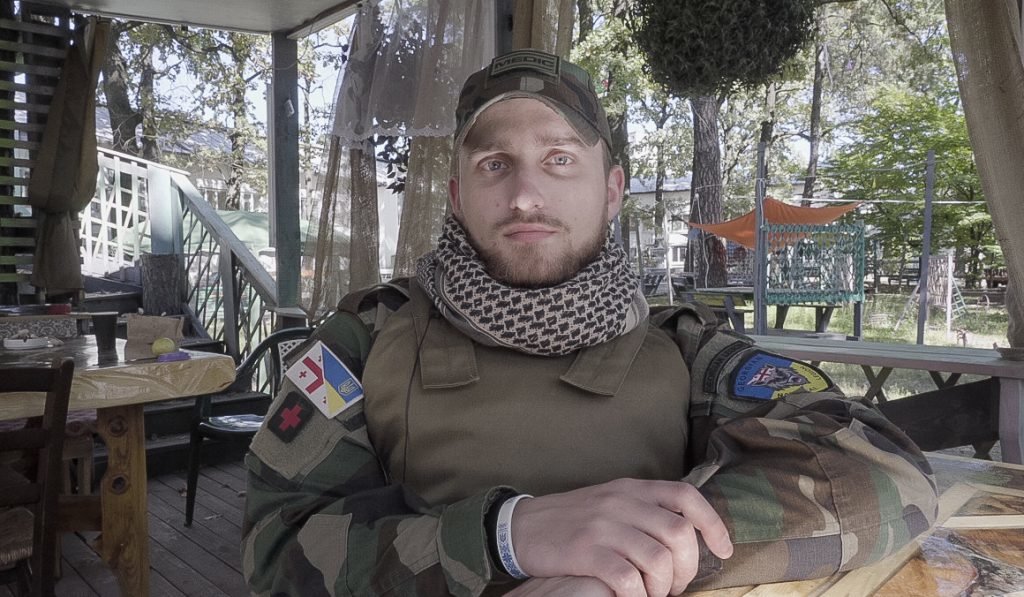
Under the command of a former Georgian military officer named Mamuka Mamulashvili, the Georgia National Legion formerly operated as a front-line unit in the early years of the war in Ukraine’s eastern Donbas region. Now garrisoned on the outskirts of Kyiv, this all-volunteer unit has become a clearinghouse for foreigners in the application pipeline to sign a three-year, active-duty service contract with Ukraine’s regular armed forces.
“Russia should be stopped in Ukraine and Ukraine should get its sovereignty,” Mamulashvili said. “We are fighting for Western democracy, we are fighting for world democracy, in fact. And everybody should understand that it’s a real war, and it’s the real face of Russia that we see today in Ukraine.”
Since the war began in 2014, the Georgia National Legion has enlisted soldiers from 27 countries, including the US, Australia, Germany, Georgia, Mexico, Azerbaijan, the UK, Austria, France, Greece, Japan, Croatia, and Serbia. And now, with Russian forces massed on Ukraine’s borders threatening a full-scale invasion this winter, Mamulashvili said there’s been a spike in the number of foreigners applying to the Georgia National Legion with hopes of serving in Ukraine’s armed forces.
The most recent applicants are from the US, the United Kingdom, Georgia, and Greece, Mamulashvili told Coffee or Die. A bellwether, perhaps, for a potential wave of foreign fighters coming to Ukraine’s defense in the event of a Russian re-invasion.
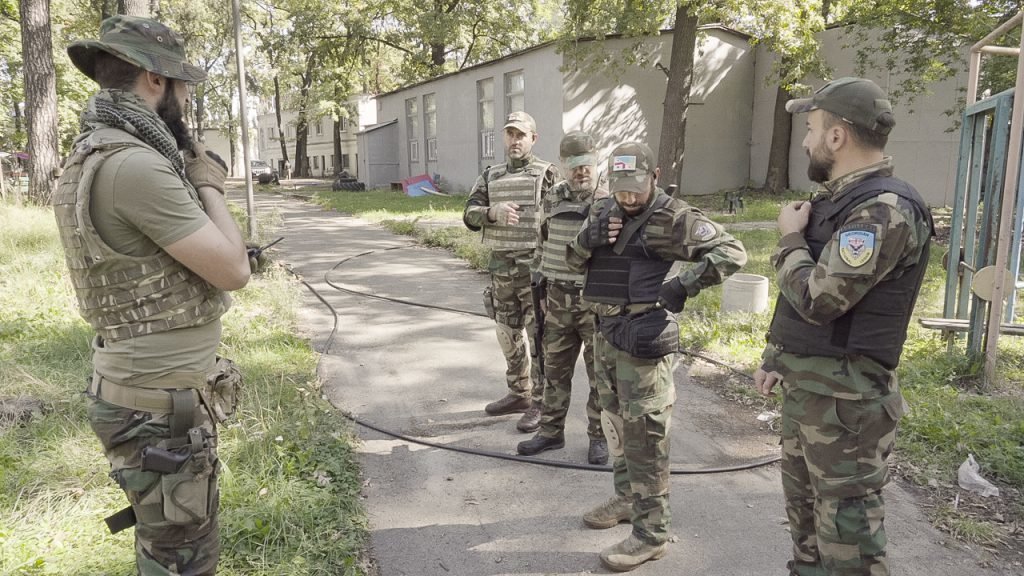
‘We Will Fight’
In the wake of Ukraine’s 2014 pro-democratic revolution, Russian military forces launched an unconventional military offensive in the eastern Donbas region. Nearly eight years later, the war is ongoing along a static, entrenched front line.
Since the war began, nearly 4,000 foreign fighters have joined Ukraine’s military ranks — both as volunteers for irregular militias and in the regular armed forces — according to a June 2019 study by The Soufan Center, an American defense research firm. With the possibility of a major Russian offensive this winter, many of Ukraine’s foreign soldiers — both veterans and those on active duty — anticipate a surge in foreign volunteers desiring to take up arms in Ukraine’s defense.
“If escalation begins, many will join us from Ukraine alone, not to mention overseas,” said Adam Osmayev, commander of the Dzhokhar Dudayev Battalion, a Chechen volunteer battalion that fought in the Donbas alongside Ukrainian forces.
“We will fight on the forefront, anywhere we can, and as hard as we can,” Osmayev, who supported Chechen rebels against Russia during the Second Chechen War, told Coffee or Die. “No matter what Russia does and how much land Ukraine initially loses, eventually Russia will lose, as long as Ukraine does not capitulate.”
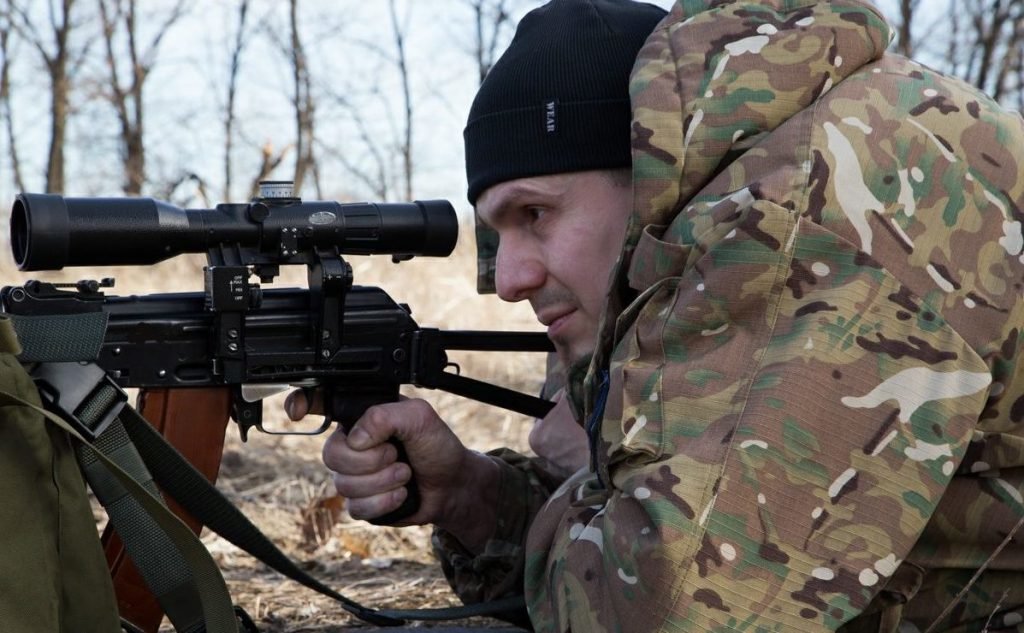
“If a major Russian invasion kicks off there will definitely be an influx of foreigners, and I think it will be important for the Ukrainian government to utilize the potential of ex-military who wish to serve and protect Ukraine,” said Aiden Aslin, a 27-year-old British citizen who enlisted in the Ukrainian Marines in 2018 and recently renewed his service contract.
Known by the nom de guerre, “Johnny,” Aslin maintains a popular Instagram account in which he posts updates about his wartime service in the Donbas as well as advice for other foreigners interested in joining Ukraine’s military.
“In the past month there’s definitely been an uptick in people messaging and asking how to join,” Aslin, who is currently deployed to Ukraine’s eastern war zone, told Coffee or Die via text message.
“If Russia invades, I will be back for sure in a few seconds,” said Giuseppe Donini, an Italian who previously fought for Ukraine as a volunteer at the war’s outset. Donini, who is not currently in Ukraine but recently received Ukrainian citizenship, added: “My old dream is to build a recon team made by foreigners — just waiting for the right time, plenty of good guys are interested.”
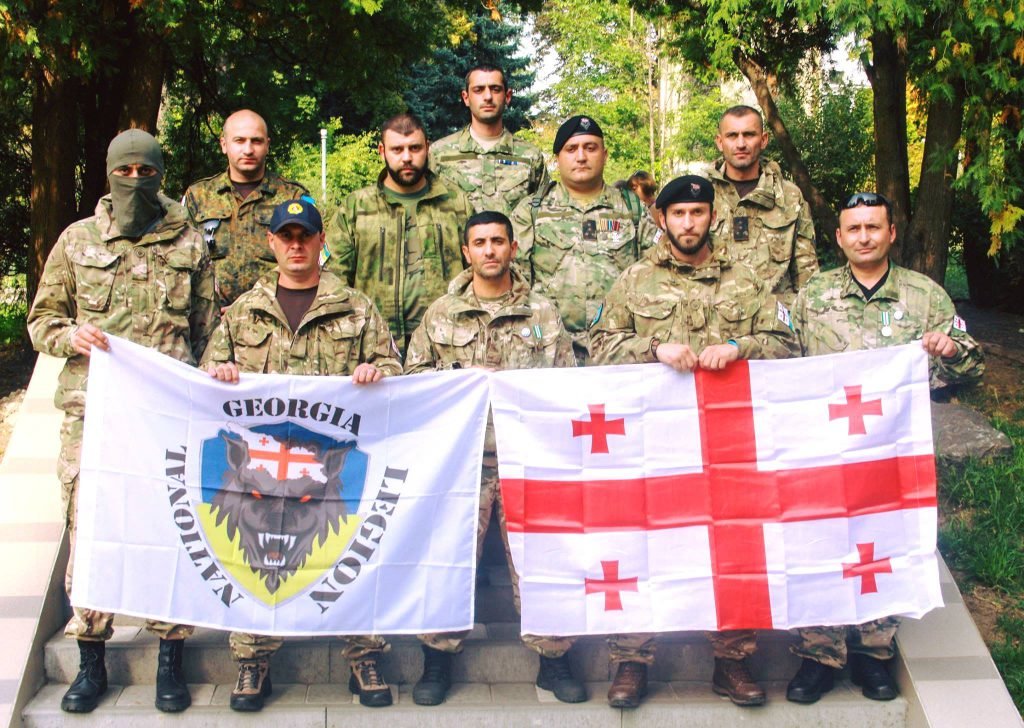
Legal Pathway
When the war in the Donbas began in 2014, many volunteer foreign fighters joined one of a number of Ukrainian irregular militias. Today, however, there is a legal pathway for foreigners to join Ukraine’s regular armed forces.
Ukraine legalized the service of foreigners in the regular armed forces in October 2015. Amid the looming threat of a major Russian offensive this winter, on Dec. 14 Ukraine’s parliament adopted a law simplifying the process for foreigners who served in Ukraine’s armed forces to receive Ukrainian citizenship.
The application process for a foreign citizen to join Ukraine’s armed forces typically takes between two and four months. The application is done in Kyiv, Ukraine’s capital city, and requires medical and psychological evaluations, as well as a criminal background check. In particular, Ukrainian defense officials reject applicants who have associated with any far-right extremist groups or have ties to the Russian government.
Once approved for service, the foreign volunteer must then apply to an individual unit for acceptance — normally, a letter of invitation from a battalion commander is required to formally join a unit. No matter one’s military background, each foreign applicant must complete three months of basic military training before deploying to the war zone.
Although pro-Ukraine foreign fighters have come from 38 countries, the overwhelming majority are Russians — about 3,000, according to The Soufan Center. Other countries with large shares of pro-Ukraine foreign fighters include the post-Soviet countries of Belarus and Georgia, as well as Croatia, a country that fought for its independence from Yugoslavia in the early 1990s.
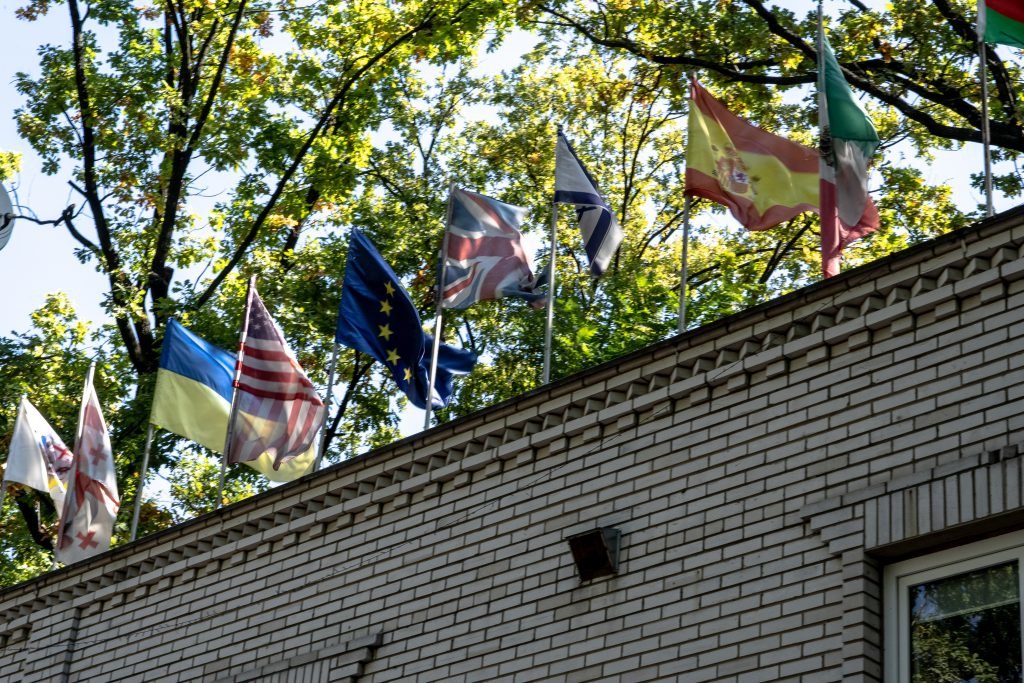
The Russian side of the war has drawn more than 13,300 foreign fighters, of which about 12,000 are Russians. Of the roughly 1,300 non-Russian foreigners who joined the ranks of Moscow’s forces in the Donbas, the highest numbers came from Serbia, Germany, and Belarus.
Foreigners who enlist with Ukraine’s regular armed forces receive temporary residency for the duration of their service contract, which typically lasts three years. Foreigners who join volunteer organizations to contribute to the war effort must obtain temporary residency by other means.
Casus Belli
Diverse reasons have inspired foreigners to volunteer for Ukraine’s armed forces. Some simply wanted to defend Ukraine’s territorial sovereignty. In other cases, foreigners fought in Ukraine to avenge historical grudges against Russia.
“I came to help Ukraine fight Russian occupation. Ukraine is our ally, and this is another battle of the war that started in Georgia,” said Levan Fifia, 30, a Georgian army veteran of the 2008 war with Russia, as well as multinational missions in Iraq and Afghanistan, who is a Georgia National Legion volunteer.
Some foreigners saw the war in Ukraine as a last stand against Russian aggression pushing deeper into Europe. “This conflict should not be disregarded as irrelevant, because Europe should be defended in Ukraine, because the world must show that Russia’s expansion ambitions are not welcome in today’s society,” said Vjekoslav, a 39-year-old Croatian serving in Ukraine’s 1st Separate Marine Battalion, which is currently deployed close to the city of Mariupol in the eastern war zone.
A veteran of the Croatian army who served five years as an infantryman, Vjekoslav enlisted in the Ukrainian armed forces in 2020. As the citizen of a country that has suffered its own war in recent times, Vjekoslav said he found common cause with Ukraine’s fight to shake off decades of Russian overlordship.
“I see this struggle for freedom of the Ukrainian people as ours was in the early 90s,” Vjekoslav said, adding that Russia’s aggression in Ukraine is part of a “global problem.”
Describing the current front-line conditions in the Donbas, Vjekoslav said: “The role of the Ukrainian side engaged in the conflict is like ‘night watch’ from Game of Thrones. We stand on the wall, not letting the barbarian hordes get into the country, making sacrifices in our lives so that rest of the people can have normal lives.”
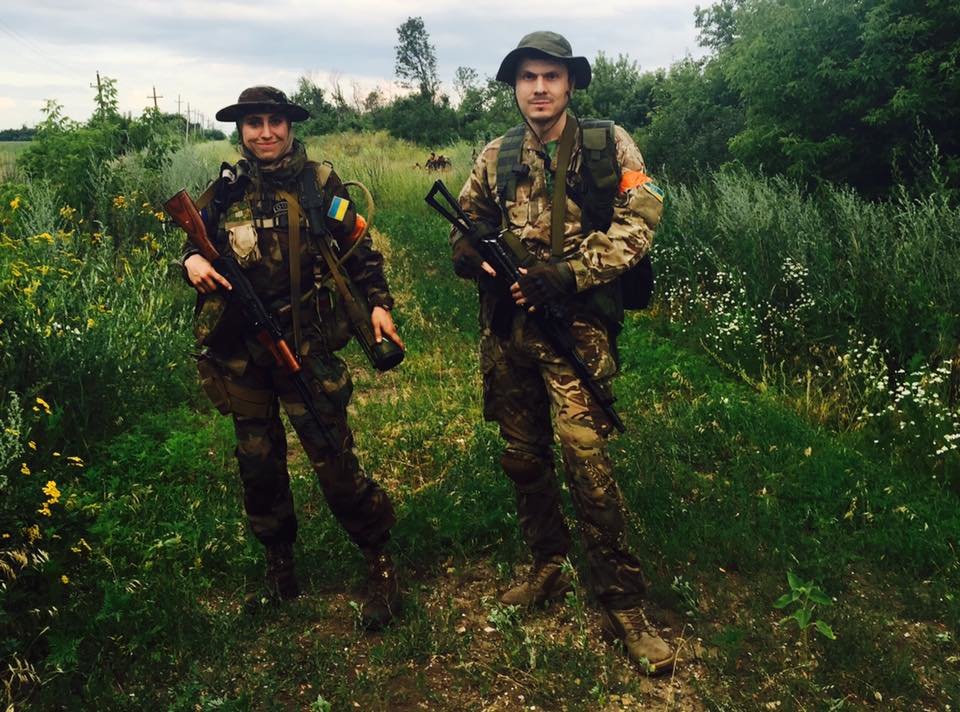
Apart from ideological or historical objectives, each foreign volunteer soldier also possesses uniquely personal motives, which led him or her to war.
In 2012, while the pro-Russian Viktor Yanukovych was president, Ukrainian security agents arrested Osmayev for his role in an alleged plot to assassinate Russian President Vladimir Putin — a charge that Osmayev denies. After Yanukovych’s ouster during the 2014 “Revolution of Dignity,” Osmayev was released from prison and subsequently joined the Dzhokhar Dudayev Battalion on the front lines in the Donbas.
Osmayev later assumed command of the battalion after the unit’s founding commander, Isa Munaev, was killed in action during the February 2015 battle for Debaltseve in eastern Ukraine. Osmayev’s wife, a Ukrainian-born doctor of Chechen heritage named Amina Okuyeva, served as a sniper in the Chechen volunteer unit. Assassins killed Okuyeva during an ambush on the outskirts of Kyiv on Oct. 30, 2017.
Although the Dzhokhar Dudayev Battalion is no longer on the front lines, Osmayev — who now has Ukrainian citizenship — said that if Russia re-invades Ukraine he is prepared to take up arms, once again, to defend his adopted homeland.
“As to my reasons for fighting [in Ukraine], for me it’s a continuation of the war in Chechnya,” Osmayev told Coffee or Die. “Just like Poles or French fought in the allied armies in World War II, so am I fighting with Ukraine. Moreover, my wife was Ukrainian by birth, and she is buried on this land, as well as our general Isa Munaev.”
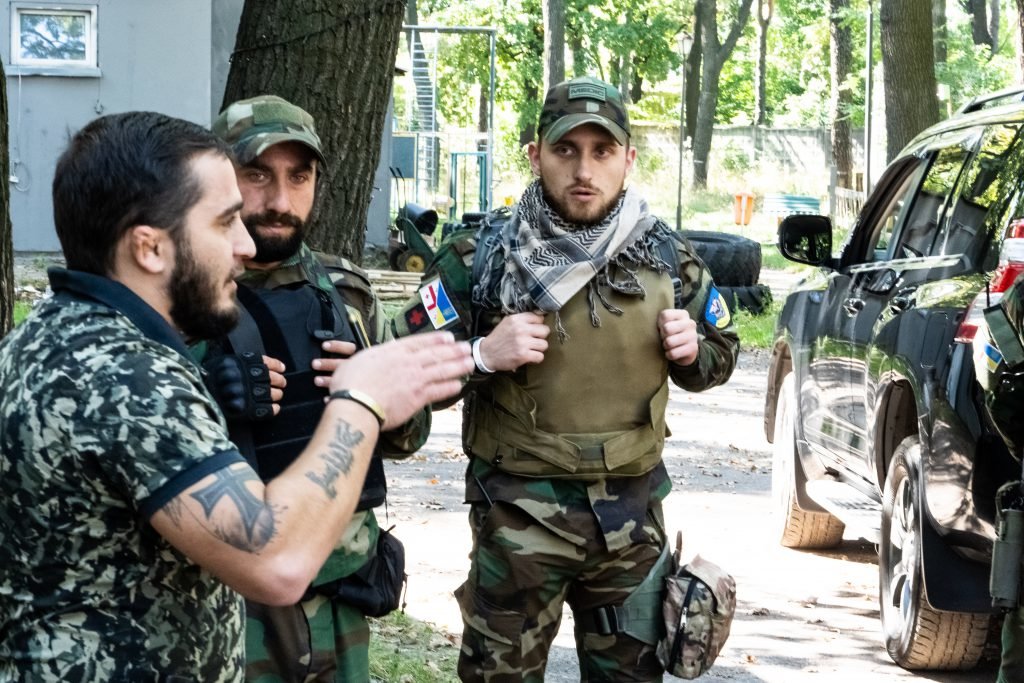
‘Not Alone’
While some foreigners likely sought adventure on Ukraine’s front lines, others, especially those who had served in other conflicts, came to Ukraine in search of a sense of purpose. Many also reveled in the camaraderie they felt in the trenches — a sense of tribal belonging, which is so hard to recreate in peaceful, civilized circumstances. Above all, many foreign volunteers hoped that their service would send a reassuring message to Ukraine’s soldiers and civilians.
“This is a very important thing for me personally,” said Bazanji, the Albanian volunteer in the Georgia National Legion.
“I do not represent Albania. I came here myself, as an individual,” Bazanji said. “I want to see this country have a bright tomorrow. I know I’m not doing superhero things, but what I’m trying to do, I want to change a little piece of someone’s life here. I want them to have a better future for their kids. I want them to be free, to be happy. Everyone deserves this.”
For his part, Vjekoslav said that he’s also experienced a notable amount of gratitude from Ukrainian civilians for his military service. He recalled a time when he visited a toy store in a local market in search of a small chessboard to fit in his rucksack for an upcoming military exercise.
The shopkeeper noticed the Croatian’s accent and asked where he was from. After Vjekoslav answered, the woman said: “Thank you for coming to Ukraine and protecting my homeland.”
She then gave him the chessboard for free.
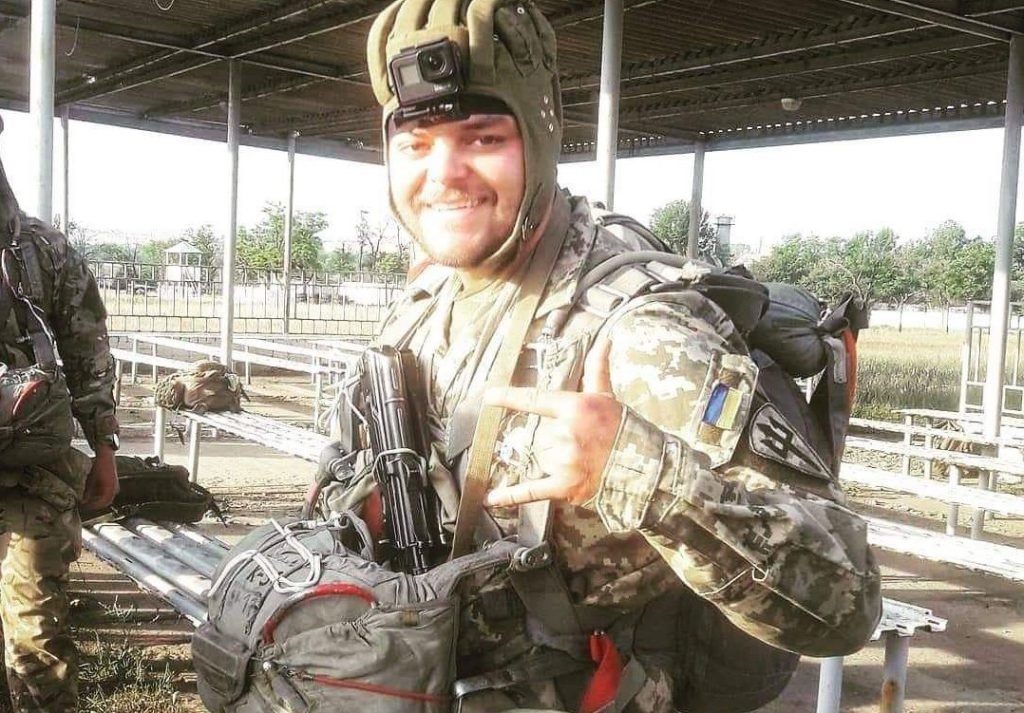
Prior to joining the Ukrainian armed forces, from 2015 to 2017 Aslin volunteered with the Kurdish YPG and Syrian Democratic Forces to fight against the Islamic State terrorist group in Syria. Facing legal problems in the UK for his service in Syria, Aslin decided to move to Ukraine and join its military to support “the cause of an independent country fighting against imperialism.”
“Compared to Syria this is a more psychologically demanding war,” Aslin said. “You’ll be in a static trench position for eight to nine months, having to worry about snipers, enemy raid groups, and artillery and mortars — so you definitely have to be mentally strong. With that said, this war could erupt at any moment and become mobile again so there is that to consider.”
Regarding the symbolism of his presence on the front lines, Aslin said of his Ukrainian comrades, “I’d like to think it reminds them they’re not alone in this fight, and that we are doing what our countries can’t.”
A Life at War
A former professional mixed martial arts fighter who holds a post-graduate degree in international relations from a French university, Mamulashvili saw Russia’s 2014 attack on Ukraine as one more battle in his lifelong struggle against Russian oppression.
“I never had a chance to work as a diplomat because we have such a neighbor, Russia, that never understands the diplomatic language,” Mamulashvili said.
Mamulashvili said he was inspired to support Ukraine after he saw videos of police cruelty against unarmed student protesters during Ukraine’s 2013 to 2014 pro-democratic revolution.
“I already knew then that Russia is going to start a war in Ukraine,” Mamulashvili said. “So that was the inspiration to come here.”
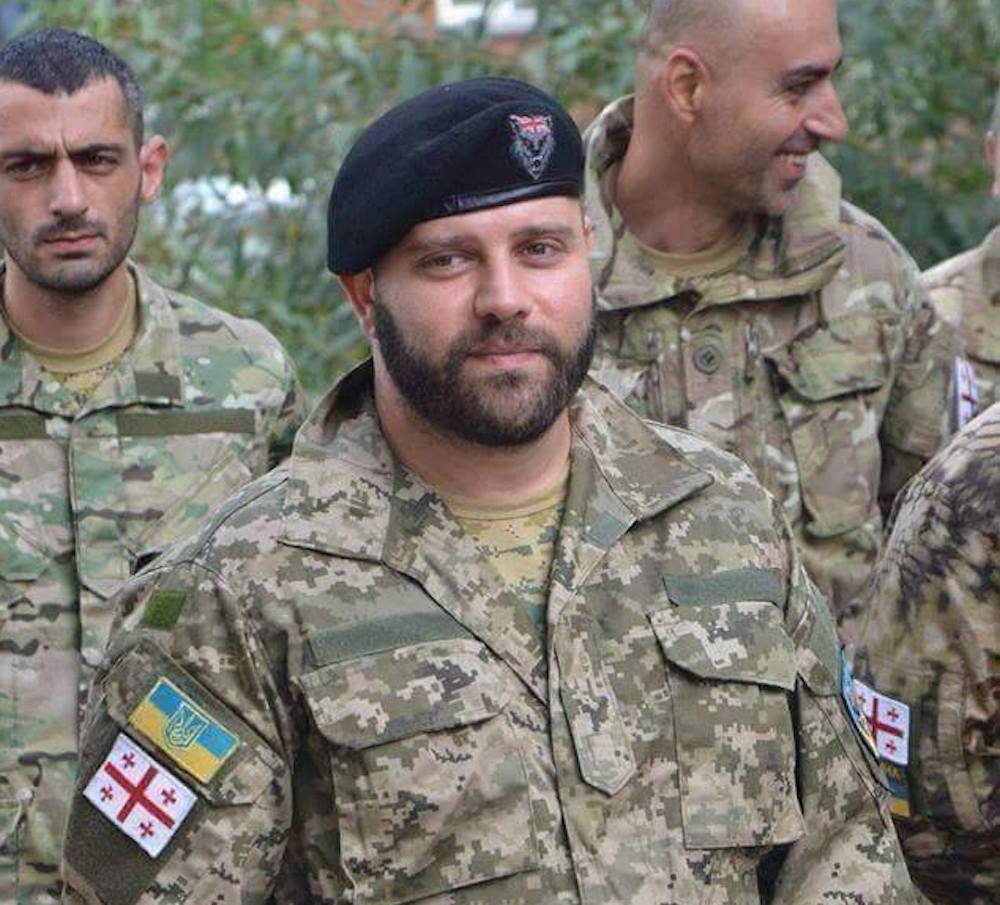
Mamulashvili founded the Georgia National Legion to support Ukraine’s armed forces, which were depleted by years of post-Soviet corruption and could only muster a few thousand combat-ready soldiers when the war began in 2014.
“The idea of creating the legion was to gather people of different nationalities to serve together to stand against Russian aggression, and we did it,” Mamulashvili said. The unit’s symbol is the head of a wolf — an allusion to ancient Persians’ description of Georgia as a “land of wolves.”
Today, Ukraine’s regular military is a much more capable fighting force, which no longer relies on the assistance of volunteer militias. For its part, the Georgia National Legion has become a way station for foreigners who wish to join Ukraine’s regular armed forces. The legion provides housing, meals, and military training for volunteers as they are vetted for military service. The unit’s utility to Ukraine’s war effort has made it a target for Russia. While in Ukraine, consequently, Mamulashvili has survived multiple assassination attempts.
“I’m an ideological risk for Russia, because guys like me are uniting the people. And it is a threat for Russia,” he said. “It’s nothing new for us. My family history is a fight against Russian occupation, so of course they are trying to get rid of me, and my family members too.”
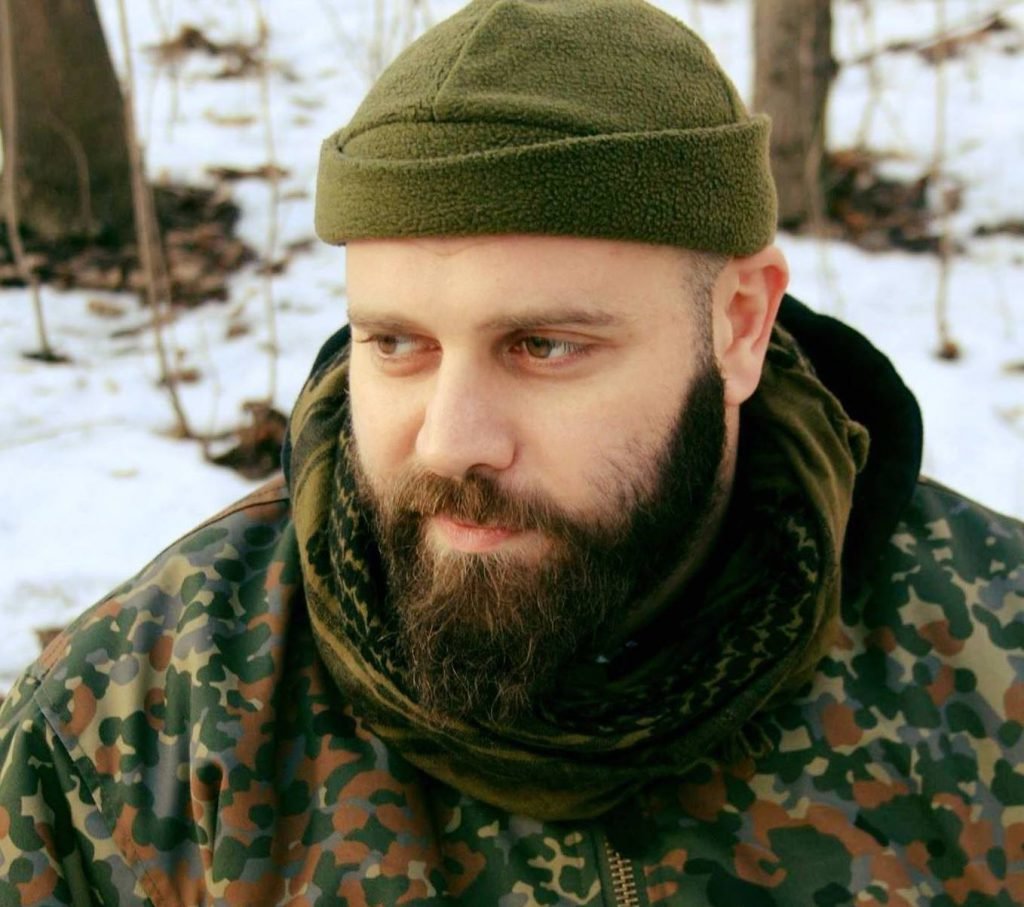
Mamulashvili was only 14 in 1993 when he snuck out to the front lines in Abkhazia, a Russian-backed breakaway territory from Georgia, and joined a combat unit commanded by his father, Zurab Mamulashvili, a highly regarded Georgian military officer.
In Abkhazia, Mamulashvili was captured after a 20-hour firefight against a group of Russian soldiers and foreign mercenaries. With gunshot wounds to his head and leg, he endured torture and solitary confinement during four months as a Russian prisoner of war. After about three months of captivity, Mamulashvili overheard the familiar voice of his father in the adjacent jail cell. Although badly wounded by torture, his father was elated to learn that his disappeared son was still alive
“My presence breathed life into him,” Mamulashvili later said. A photo of Mamulashvili and his father in captivity together in Abkhazia now hangs on a wall at the Georgia National Legion’s Kyiv headquarters
Mamulashvili went on to fight Russian forces again during Russia’s 2008 invasion of Georgia, as well as in Ukraine’s Donbas region. After a lifetime at war, Mamulashvili believes that the war in Ukraine, especially with the looming threat of a major Russian offensive this winter, represents a crossroads in world history.
“That’s why I’m in Ukraine. I hope this will be the last point for Russia to spread its occupation of former Soviet Union countries,” Mamulashvili said. “I hope it’s going to end here. That’s why we’re fighting.”
Read Next: Ukraine Requires Women To Register for Military Conscription as Russia Threat Looms
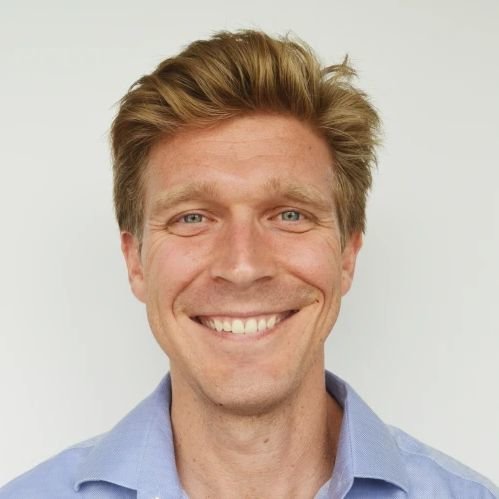
BRCC and Bad Moon Print Press team up for an exclusive, limited-edition T-shirt design!
BRCC partners with Team Room Design for an exclusive T-shirt release!
Thirty Seconds Out has partnered with BRCC for an exclusive shirt design invoking the God of Winter.
Lucas O'Hara of Grizzly Forge has teamed up with BRCC for a badass, exclusive Shirt Club T-shirt design featuring his most popular knife and tiomahawk.
Coffee or Die sits down with one of the graphic designers behind Black Rifle Coffee's signature look and vibe.
Biden will award the Medal of Honor to a Vietnam War Army helicopter pilot who risked his life to save a reconnaissance team from almost certain death.
Ever wonder how much Jack Mandaville would f*ck sh*t up if he went back in time? The American Revolution didn't even see him coming.
A nearly 200-year-old West Point time capsule that at first appeared to yield little more than dust contains hidden treasure, the US Military Academy said.












